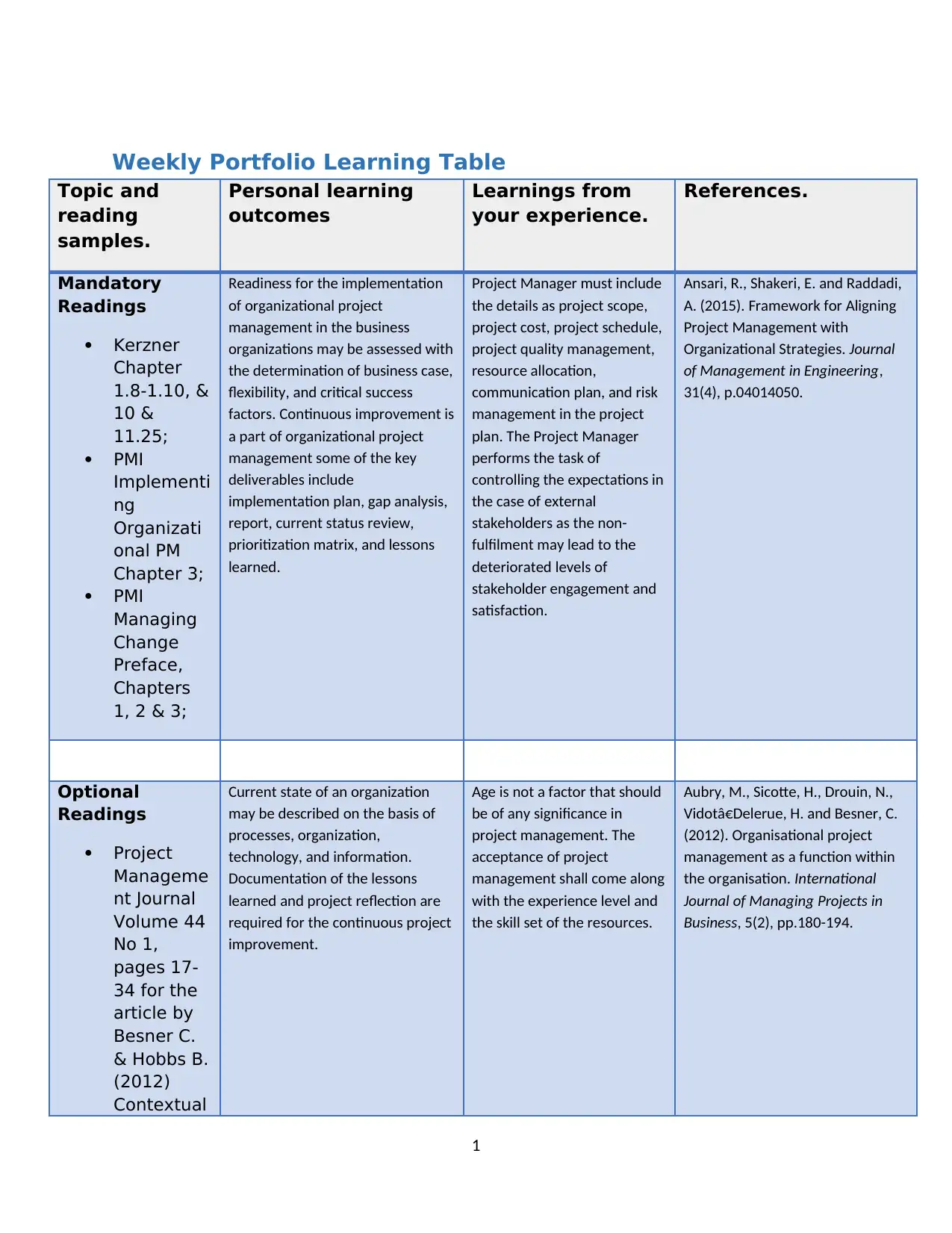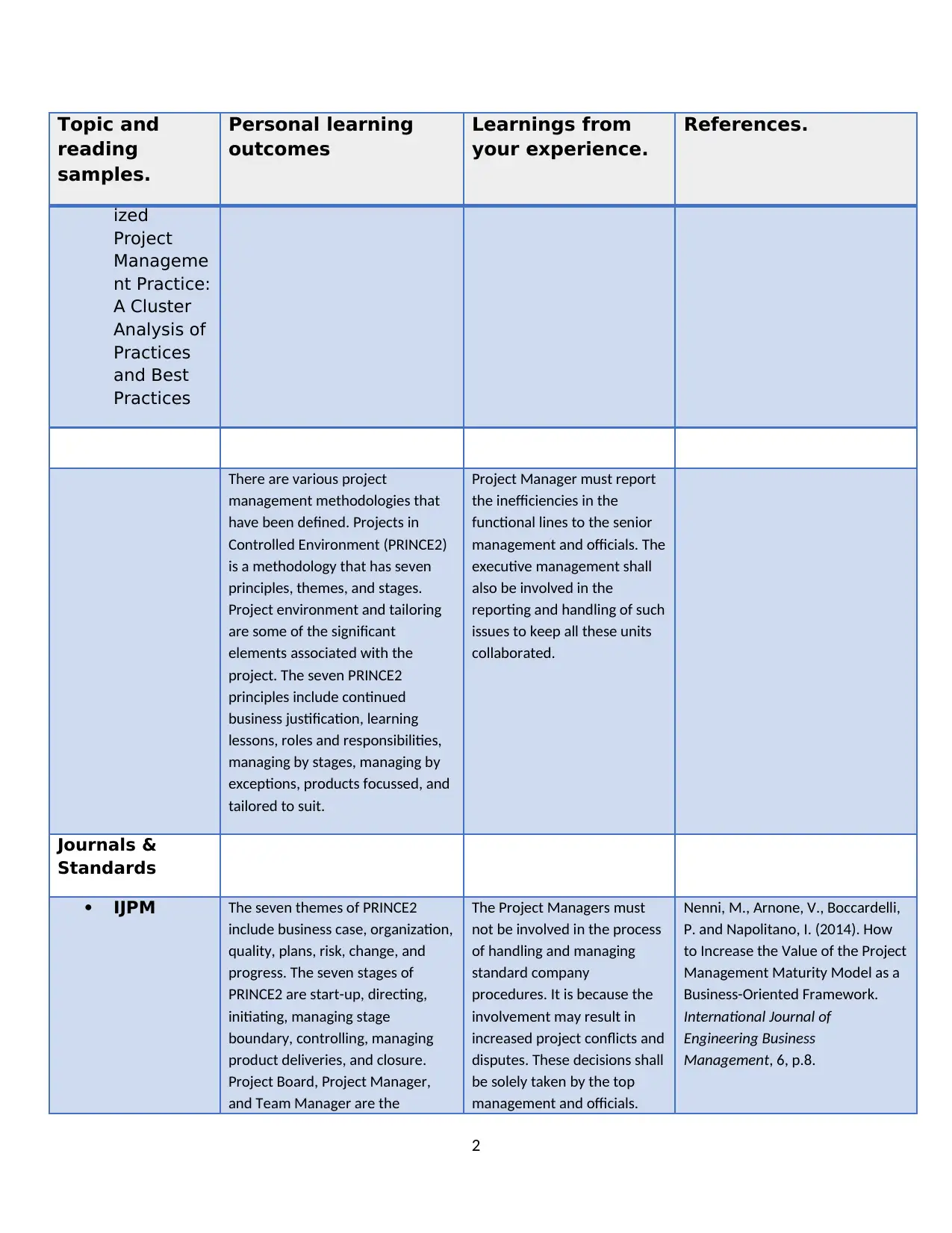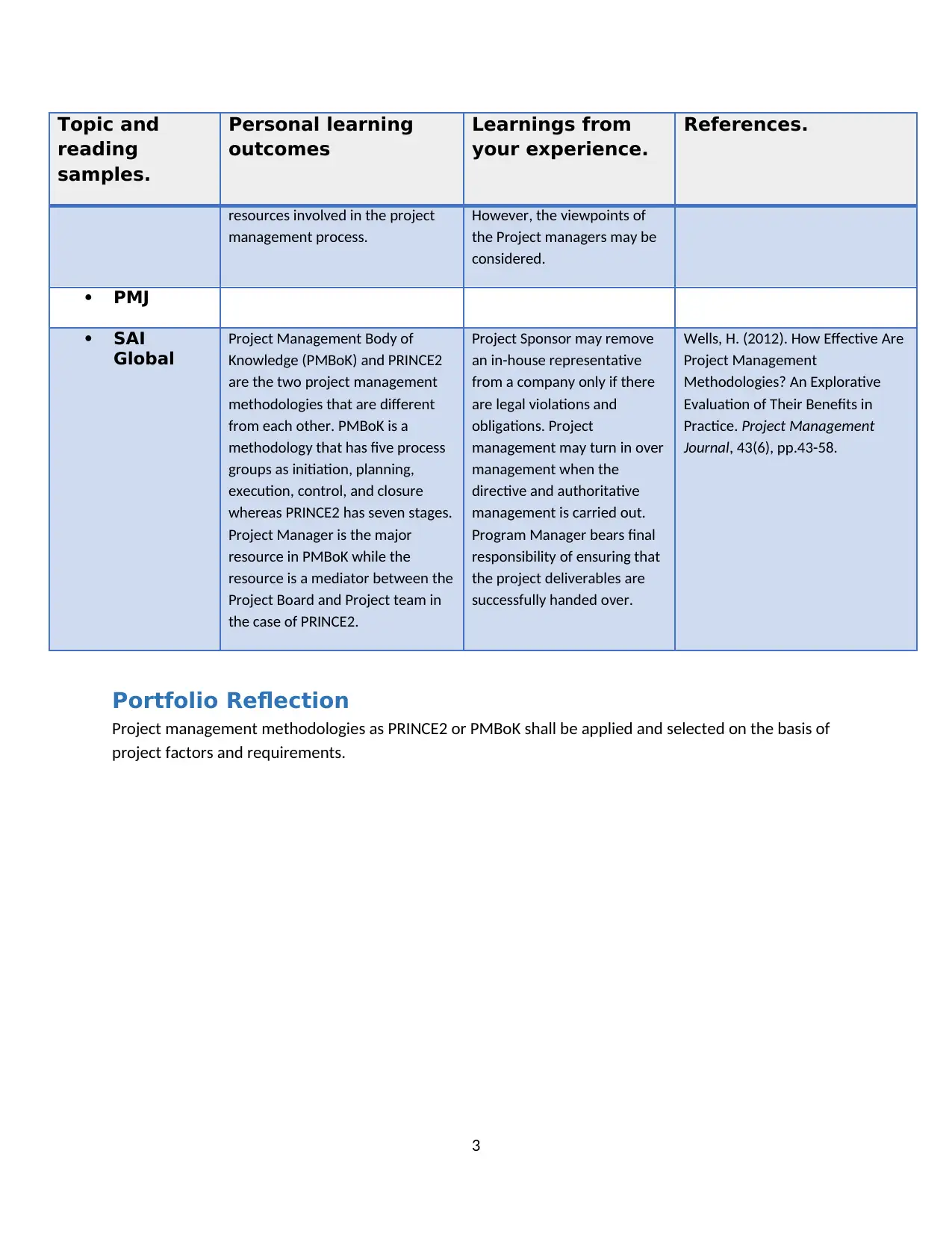Weekly Portfolio: Project Management Learning and Reflection
VerifiedAdded on 2021/05/31
|3
|853
|48
Report
AI Summary
This report presents a weekly portfolio focused on project management, covering various methodologies and practical applications. It examines key concepts such as business case determination, flexibility, and critical success factors in organizational project management. The portfolio includes discussions on continuous improvement, implementation plans, gap analysis, and the importance of project scope, cost, schedule, and quality management. It also explores the roles of a Project Manager, including managing stakeholder expectations and reporting inefficiencies. The report references methodologies like PRINCE2 and PMBOK, highlighting their principles, stages, and differences. The importance of documentation, lessons learned, and project reflection for continuous improvement is also emphasized. The report also provides insights into the relationship between project management and organizational strategies, including a framework for alignment.
1 out of 3










![[object Object]](/_next/static/media/star-bottom.7253800d.svg)